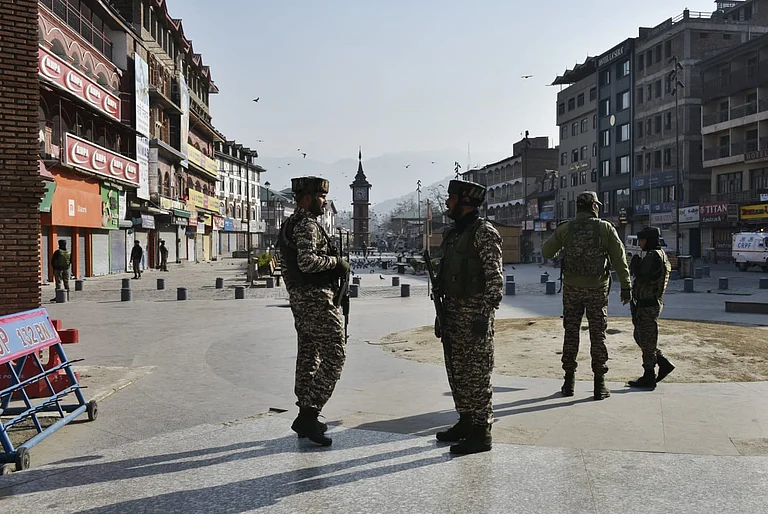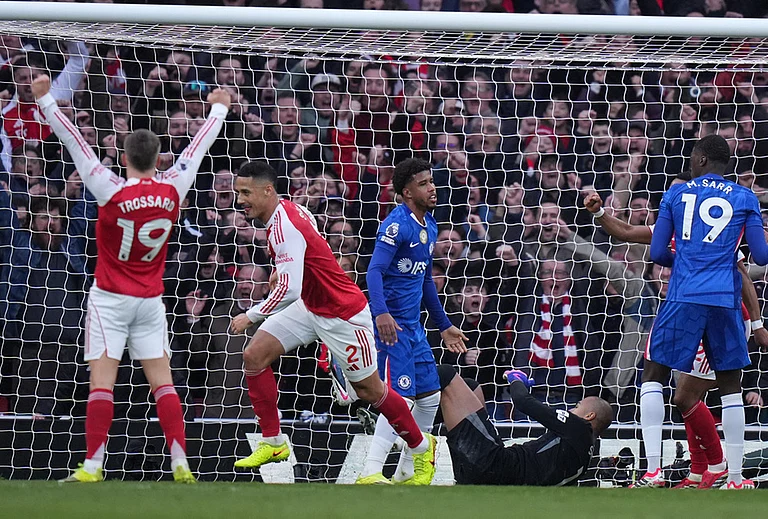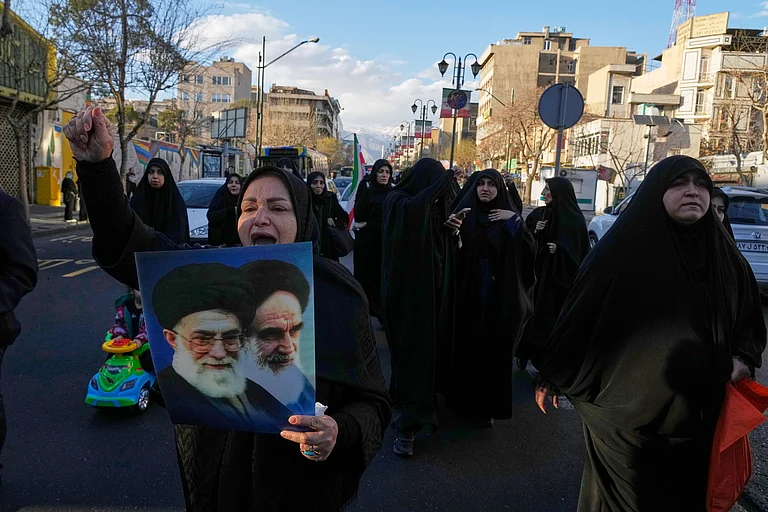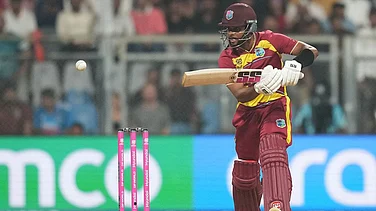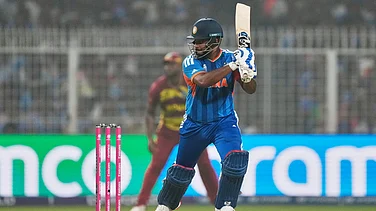That there are no easy games in international football is a stock phrase trotted out by managers and players when speaking to the media ahead of playing a bunch of part-timers who inevitably get thrashed. It also protects the bigger teams from being accused of arrogance or complacency on those few occasions when the minnows pull off a shock. Such upsets are few and far between in international football and usually sees the plucky underdogs pull off a tight win or draw thanks to an ultra-defensive display. The World Cup has borne witness to such moments in the past too. Think Cameroon’s smash-and-grab win against Maradona’s Argentina in 1990, Northern Ireland’s scrappy victory over Spain in ’82, or South Korea’s contentious golden goal defeat of Italy in ’02.
But this World Cup has told a different story with the Davids playing the Goliaths at their own game right to the final whistle. Coaches have not looked to simply nullify their opponents, but have challenged the status quo with aggressive counter-attacking, pressing and football played on the front foot. It has made for a refreshing and unpredictable tournament.
No team has encapsulated this spirit of endeavour as much as Costa Rica. When the unfancied Central American side was drawn in a ‘Group of Death’ with three former World Cup winners—England, Italy and Uruguay—they were swiftly written off as the likely whipping boys in a three-way struggle for two places. The fact that ‘Los Ticos’ not only survived the Group of Death but emerged as its chief executioner—registering two wins and a draw—made them one of the stories of the tournament.
Elsewhere, giants have been sent packing with their tails between their legs. Holders Spain saw their golden era abruptly come to an end after being comprehensively dismantled by Chile and Cristiano Ronaldo’s Portugal could only scramble a draw against the USA.
For the top teams who survived the group stages, all struggled at times against sides they would be expected to dispense with comfortably. Ghana reminded us why they were everyone’s favourite second team in 2010—their spirited display against Germany resulting in a 2-2 draw. Brazil were shut out by a zippy Mexico side buoyed by the acrobatics of goalkeeper Guillermo Ochoa and the Netherlands received a fright against Australia.
The list goes on. Iran played without fear against Argentina and would have held their lofty opponents to a stunning draw, but for a moment of Lionel Messi brilliance in stoppage time. In the last 16, Brazil, Argentina and Belgium were taken to extra time by less illustrious opposition while France and Netherlands needed late dramatic goals to seal victory. Not every lesser light shone, ask fans of Cameroon (even outside of the whiff of betting), or of Japan, South Korea and Honduras, if they felt their team gave a good account of themselves—but overall, the big boys have not had it their own way at this tournament.
There are various theories at play, as to why. One is, simply, that the so-called weaker sides are getting stronger. As Europe’s leading football squads become more multicultural, international sides are benefiting. Even little Costa Rica have players with experience in the Spanish, German and Dutch top flights, not to mention their main striker Joel Campbell experiencing Champions League football at Olympiakos last season. Of course, it takes more than just experienced individuals to make a well-organised unit, but teams such as Algeria, Ghana, Nigeria and the USA have never taken squads to the World Cup with so much meaningful, competitive experience at club level—and it showed.
Another theory—and one that is perhaps less fashionable—is that 2014’s premier international sides have had better vintages. Some kept winning without ever really clicking into gear such as the pressure-laden hosts Brazil and star-studded but spluttering Belgium. Others appeared to peak too early like the Netherlands and Germany, while others failed spectacularly due to being in transition (Italy, England) or at the end of a cycle (Spain).
The deficiencies of the top sides have been no more exposed than at the back. In Europe, the transfer market for centre-backs has become grossly inflated due to a dearth in genuine talent and this World Cup has served to underline that. You could count the world-class defenders at this tournament on one hand, with arguably the two best centre-backs in the group stage, Colombia’s Mario Yepes (38) and Mexico’s Rafael Marquez (38), being two of the oldest.
Faced with these flawed defences, our enterprising minnows have prospered at times, contributing to what is on course to be the biggest World Cup goal glut we’ve ever seen. Fans have enjoyed an average of 2.79 goals per game—the highest since the 1982 World Cup (2.81) and more goals have been scored in 2014 than in any other World Cup since 1970.
It’s fair to say that this World Cup will not be remembered as a celebration of the defensive craft. But despite all of this, we are unlikely to be on the brink of a reordering of the football establishment. This year’s eight quarter-finalists consisted of eight group stage winners, including former champions France, Germany, Argentina, Brazil in addition to two-time runners up Netherlands.
So even though the most fluent and entertaining football has come from ‘outsiders’ like Colombia, Algeria, Chile and Costa Rica, the 2014 World Cup is still more likely to be claimed by a nation with history and pedigree in this competition. There are indeed no easy games in international football.
***
Four Stars For The Future

James Rodriguez With the prolific Radamel Falcao ruled out of the Cup, Colombians pinned their hopes on 22-year-old playmaker Rodriguez. The Monaco star thrived, scoring in each game of the first round, including a stunning goal-of-the-tournament contender against Uruguay.

Guillermo Ochoa The fuzzy-haired shot-stopper became a viral sensation after his man-of-the match display against Brazil in which he had six saves—four of which would be world-class in anybody’s book. As Mexico lost in the last 16 to the Dutch, Ochoa pulled off one last towering display with eye-catching saves off strikes by de Vrij and Robben. Ochoa is currently without a club, but expect that to change very soon.

Joel Campbell An Arsenal player since 2011, Costa Rica forward Campbell has spent the last three years in limbo on loan across Europe, failing to get a work permit and then being deemed surplus to requirements by Arsene Wenger who sent him on loan once more. The 22-year-old’s standout performance against Uruguay—where he scored one and set up another—was followed up with mature displays as Costa Rica’s spearhead.

Islam Slimani With two goals and one assist in the group stages, including the towering header which sealed the Les Fennecs’ passage out of the group stage, Slimani has seen his stock rise significantly at what is his first World Cup. The Sporting Lisbon striker terrorised the Germany defence in the last 16, doing everything but scoring, and is now said to be a target for a host of Premier League clubs, including West Ham and Newcastle.
Amar Singh is Digital Sports Editor for the London Evening Standard








